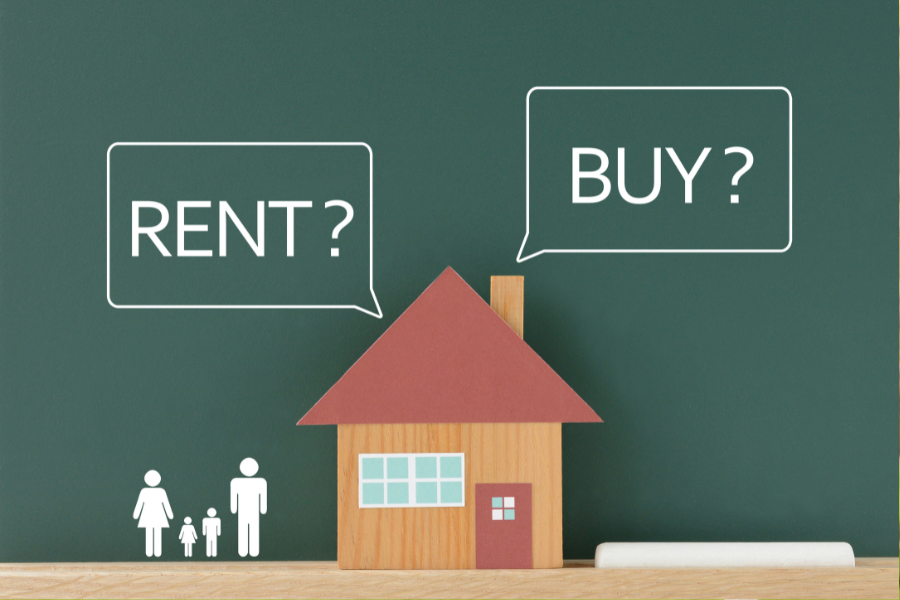Things To Consider When Selling a Rental Property
What do you need to consider when selling a rental property? Here are ten great tips for selling a rental property.
Real estate is an excellent long-term investment in the right circumstances. As long as your finances are in order and you are experiencing positive cash flow from your investment, owning a rental property is worth it.
While rental properties can be profitable investments, many risks are also associated with being a landlord. They are a huge responsibility, and after a time, it might make more sense to sell the property than keep it.
Whether the home is making less money than expected or the property could lead to more profit if the house is sold, there are many reasons why a landlord would want to sell a rental property.
Once the decision is made to sell, many things must be considered, especially if tenants renting a home are still living on the property. From notifying tenants to considering capital gains taxes, it is essential to take the necessary steps and follow the law before listing a rental property for sale.
Follow these ten steps when selling a rental property
1. Notify the Tenants
If you plan to sell an investment property, it is essential to notify the tenants as soon as possible before listing. This is especially true if you rent out extra space in your home. Generally, tenants should be notified at least 90 days before the sale date to have enough time to vacate the property and find other housing.
The notice should be formatted as a formal letter. It should provide all of the proper information regarding the intent to sell the property, including the date of the sale and the content information of the landlord or property manager. The letter should also explain that the tenants have the right to remain in the property until their rental agreement expires.
Tenants should be informed that they will be given notice before showings and that a real estate agent will accompany all showings to prospective buyers. The formal notice should also request that the tenant keep the property clean.
Landlords should also consider offering tenants the option to buy the property, which is convenient for both parties. While landlords are not legally obligated to sell to tenants, this can be a mutually beneficial agreement if a tenant does not want to leave and offers a fair price.

2. Choose the Right Real Estate Agent
Once you decide to sell a rental home, the next step is to find an experienced real estate agent with the proper credentials who knows how to sell properties similar to yours.
Choosing a real estate agent can seem like a complicated process, but finding the best one for the job makes the home-selling process that much easier. Most of the time, you will not know who to work with until you have met in person to ask them questions and get to know their personality.
Every agent should have specific skills to ensure that they have what it takes to sell your home fast, and you should go with the agent who demonstrates them best. From communication to problem-solving, all successful real estate agents should know how to talk to people and have a solid marketing plan.

3. Evaluate the Rental Property
As a landlord, it can be tempting to put your rental property up for sale as soon as possible. However, taking the time to evaluate the property beforehand can help maximize the return on your investment.
You should evaluate the home by walking through each room and making necessary repairs before listing the property for sale. Make sure to ensure all of the furniture is up to date and ready to be sold. This includes assessing the outside of the property and ensuring the home has proper curb appeal.
Any repairs that are made will help the property sell for a higher price, especially if they fix safety issues or improve outdated systems. Consult with a real estate agent for advice about what repairs are worth the time and money.
4. Analyze Capital Gains Taxes
Capital Gains Tax is a tax on profits from a sale of a non-inventory investment. Some of the most common investments considered capital gains include stocks, bonds, precious metals, businesses, property, and real estate.
Long-term capital gains tax is levied on the profits of investments held for more than one year, and short-term capital gains tax is levied on the earnings of investments held for one year or less.
The current capital gains tax rates are 0%, 15%, or 20%, depending on the taxpayer's tax bracket for that year. Long-term capital gains are taxed at lower rates than short-term capital gains, which is why most property owners decide to sell after one year.
Here are the 2024 Tax rates for Long Term Capital Gains:
| Filing Status | 0% | 15% | 20% |
| Single | Up to $47,025 | $47,025 to $518,000 | Over $518,000 |
| Head of Household | Up to $63,000 | $63,000 to $551,350 | Over $551,350 |
| Married Filing Jointly | Up to $94,059 | $95,050 to $583,750 | Over $583,750 |
| Married Filing Separately | Up to $47,025 | $47,025 to $291,850 | Over $291,850 |
*Data Sourced From Investopedia.
5. Identify Your Target Buyer
Identifying your target buyer for a rental property can help determine your marketing strategy to make the most money. Many factors go into selling a home, and understanding your target market will increase your chances of reaching potential buyers.
Research the local real estate market and visualize the type of buyer that you want to attract to your property. From families moving to the area to retirees, look at the demographics of who would be most interested in buying and use this information to reach and engage the right buyers.
6. Plan Showing Around Tenant's Schedule
When selling a rental property with tenants still living in the home, it is essential to communicate with each other and schedule showings that are mutually convenient. Be considerate and respectful towards tenants by choosing dates and times that work best for everyone when scheduling showings.
In North Carolina, no law requires a landlord to give notice to tenants before entering a property, but it is standard practice to provide a tenant with at least 24 to 48 hours notice.
Show compassion and understanding towards tenants by giving them a heads-up before a showing and planning showings during business hours. Home showings can be stressful and frustrating for tenants, so giving them advanced notice and planning showings ahead of time will ensure that everyone is on the same page.

7. Arrange a Pre-Listing Home Inspection
As a landlord, you want everything to be in working order so that you can make the most money from your investment. Schedule a pre-listing home inspection before putting the rental property up for sale.
This home inspection allows you to identify any potential issues or problems with the property that need to be fixed before listing. While a pre-listing inspection is not necessary or required, it is an excellent idea for sellers to stay on top of things and get any problems fixed and out of the way.
While pre-listing inspections cost money and can mean paying for unnecessary repairs, they can help speed up the selling process and make the home more attractive to potential buyers.
8. Clean the Property
Cleaning is a crucial and necessary step before listing a home for sale. When selling a rental property with active tenants, the landlord must take responsibility for keeping the home clean and in good condition before showing it to potential buyers.
If the property still has tenants who have not yet moved out, offer to hire a cleaning service while the home is on the market to keep the house in tip-top shape during showings.
Hiring a cleaning service will ensure the home is in its best condition for potential homebuyers. It might be a good idea to arrange showings with the tenant around the same time as these cleanings.

9. Know the Laws
Know the laws in your state before selling a rental property. North Carolina has specific laws and regulations regarding tenant rights, property showings, and taxes that need to be followed when selling a rental property.
For instance, North Carolina law requires landlords to keep rental properties habitable and in fit condition. Law also requires that tenants living in the home during the time of a sale have the right to live there until the lease expires.
Do your research and stay up to date on real estate laws in your state.
10. Make Necessary Repairs and Upgrades
Once a pre-listing home inspection has been completed, take the time to make necessary repairs and upgrades to the home. Some of the most common repairs that a seller can make to improve the property value and overall appeal of the home include fixing electrical issues, improving the condition of a bathroom, making lighting improvements, adding curb appeal, repairing the roof, replacing the garage door, and remodeling the kitchen or basement.
It is easier to get all of the necessary repairs fixed right away instead of negotiating home repairs with a buyer. While the seller is not legally obligated to pay for repairs, the buyer may walk away from the sale if things are not fixed properly.

Methodology
We used data and information from several different sources to create this guide about the top ten tips for selling a rental property. Most of the data used is from Investopedia and the National Association of Realtors.
FAQs
How do I reduce taxes when I sell my rental property?
The best way to reduce taxes before selling a rental property is to turn the house into your primary residence, reinvest the proceeds of rental property sales into new real estate, or use tax loss harvesting, which pairs the gains from a sale with the loss from another investment.
At what point should you sell a rental property?
It is time to sell a rental property if there is a loss of positive cash flow, the property requires lots of costly repairs that can lead to further negative cash flow, or if there are shifting market conditions that could lead to more profit for the owner if the home is sold.
Is selling a rental property considered a capital gain or ordinary income?
The selling of a rental property is considered a capital gain or loss instead of ordinary income. If the property is owned for more than one year it is considered a long term capital gain or loss and if it is owned for one year or less then it is a short term capital gain or loss.
Tips For Selling a Rental Property - Final Thoughts
No matter the reason a landlord decides to sell a rental property, it is essential to follow the above steps in order to get the biggest return on your investment and to attract potential homebuyers.
If you are looking to buy more properties in Raleigh for investment purposes, contact the experts at Raleigh Realty. Our team is experienced and ready to help you with your buying and selling needs.



